
International Journal of Gastronomy and Food Science
Scope & Guideline
Celebrating Food Science: Where Culture Meets Innovation
Introduction
Aims and Scopes
- Culinary Science and Technology:
Research that applies scientific principles to culinary techniques, exploring how different cooking methods impact flavor, texture, and nutritional value. - Cultural Gastronomy:
Studies focusing on the cultural significance of food practices, including regional cuisines, food heritage, and the role of gastronomy in tourism. - Sensory Evaluation and Consumer Acceptance:
Investigations into the sensory attributes of food products and consumer perceptions, preferences, and behaviors related to food. - Food Sustainability and Waste Management:
Research addressing sustainable food practices, including the reduction of food waste, valorization of by-products, and sustainable sourcing of ingredients. - Health and Nutrition Science:
Exploration of the nutritional aspects of food, dietary trends, and the impact of culinary practices on health outcomes. - Innovative Food Products and Processing Techniques:
Development and evaluation of novel food products and processing methods aimed at enhancing food quality, safety, and consumer acceptance. - Ethnobiology and Traditional Food Practices:
Studies that investigate traditional food practices, ethnobiological aspects, and the role of indigenous ingredients in contemporary gastronomy.
Trending and Emerging
- Plant-Based and Alternative Proteins:
There is a growing focus on plant-based foods and alternative proteins, driven by consumer demand for healthier and sustainable food options. - Food and Technology Integration:
Research that explores the intersection of food and technology, including 3D food printing, AI in culinary practices, and digital gastronomy, is on the rise. - Sensory Science and Consumer Behavior:
An increased emphasis on sensory science, particularly how sensory attributes influence consumer behavior and acceptance of food products. - Culinary Medicine and Health:
Emerging studies focus on the intersection of culinary practices and health, exploring how cooking techniques and food choices impact well-being. - Global Food Systems and Sustainability:
Research addressing the global food system's sustainability challenges, including local sourcing, food security, and reducing environmental impact, is gaining momentum. - Cultural and Social Dimensions of Food:
A trend toward examining the cultural, social, and emotional aspects of food consumption, highlighting its role in identity and community.
Declining or Waning
- Traditional Cooking Methods:
While still relevant, the focus on traditional cooking methods has decreased as newer techniques and technologies gain traction in culinary research. - Basic Food Safety Studies:
Research solely centered on basic food safety practices has waned, as there is a shift towards integrated approaches that combine food safety with sensory and consumer studies. - Single-Ingredient Studies:
The examination of individual ingredients in isolation has become less prevalent, as researchers increasingly adopt a holistic view that considers ingredient interactions and overall dish profiles. - Regional Culinary Competitions:
The emphasis on studies related to culinary competitions and their impact on regional cuisine has diminished, possibly due to a growing interest in more comprehensive culinary narratives.
Similar Journals
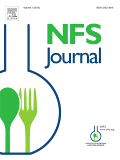
NFS Journal
Advancing knowledge at the intersection of food, health, and nutrition.NFS Journal, published by ELSEVIER, is at the forefront of research in the fields of Food Science and Nutrition and Dietetics, boasting an impressive impact factor that underscores its significance. With an Open Access model since 2015, the journal facilitates widespread dissemination and accessibility of high-quality research, making it a valuable resource for scholars and practitioners alike. Located in Germany, this journal has made its mark with its prestigious Q1 ranking in both Food Science and Nutrition and Dietetics as of 2023, positioning it among the top-tier journals in these disciplines. Additionally, it holds an outstanding standing in Scopus rankings, being placed at 10th out of 140 in Nutrition and Dietetics and at 27th out of 389 in Food Science, reflecting its influence and reach within the global academic community. The NFS Journal is dedicated to publishing the latest advancements and practices that shape our understanding of the relationship between food, health, and nutrition, appealing to researchers, professionals, and students eager to stay updated with novel insights and breakthroughs.

Journal of Food and Nutrition Research
Championing Research for Optimal Nutrition and HealthJournal of Food and Nutrition Research, published by the VUP FOOD RESEARCH INST in Bratislava, Slovakia, serves as a vital platform for disseminating cutting-edge research in the fields of food science and nutrition. With an ISSN of 1336-8672 and an E-ISSN of 1338-4260, this journal emphasizes the importance of interdisciplinary approaches to address contemporary challenges related to food quality, dietary practices, and nutritional health. Notably recognized in the 2023 Scopus rankings, the journal is classified in Q3 quartiles for both Food Science and Nutrition & Dietetics, providing a forum for researchers aiming to enhance knowledge and practices within these domains. Those engaged in academia and industry will find the journal invaluable for its comprehensive scope, which covers novel food technologies, nutrition interventions, and the implications of dietary behaviors. Though not open access, the journal is dedicated to enriching the academic conversation and contributing to advancements in public health and nutrition policies.
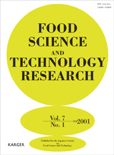
FOOD SCIENCE AND TECHNOLOGY RESEARCH
Pioneering Research for Sustainable Food SolutionsFOOD SCIENCE AND TECHNOLOGY RESEARCH, published by the Japanese Society of Food Science & Technology, is a pivotal journal that encompasses a wide spectrum of research in the fields of food science, biotechnology, and engineering. With its ISSN number 1344-6606 and a digital counterpart E-ISSN 1881-3984, this journal aims to disseminate cutting-edge research and innovative technologies that enhance food safety, quality, and sustainability. Recognized for its contributions, it holds a Q3 category ranking in multiple disciplines, including Food Science and Biotechnology, indicating a significant role in advancing academic discourse. Researchers and professionals can benefit from its insights, as the journal covers an array of topics relevant to industrial applications, marketing strategies, and scientific advancements. Although not an open-access journal, it has a wide reach and is committed to providing high-quality, peer-reviewed content essential for scholars and practitioners in the food science community from 1999 to 2024.
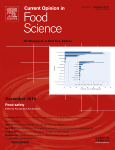
Current Opinion in Food Science
Exploring Innovations in Culinary ResearchCurrent Opinion in Food Science is a premier peer-reviewed journal published by ELSEVIER SCI LTD that focuses on the latest advancements and research in the domain of food science and technology. With its ISSN 2214-7993 and E-ISSN 2214-8000, this journal serves as a critical platform for researchers and professionals to share insights and opinions on emerging trends, innovations, and challenges faced in food science. The journal enjoys an impressive impact factor and ranks in the first quartile (Q1) in both Applied Microbiology and Biotechnology and Food Science, symbolizing its influence and reputation in the field. It is strategically located in the Netherlands and conducts its academic dialogue with a broad scope that includes essential topics in food safety, nutrition, and sustainable practices. Operating from 2015 to 2024, the journal has established itself as a critical resource for the global academic community, boasting excellent Scopus rankings—#9 out of 389 in Food Science and #6 out of 127 in Applied Microbiology and Biotechnology—indicating its high relevance and impact. Readers can look forward to insightful articles and comprehensive reviews that bridge the gap between fundamental research and practical application in the ever-evolving food science landscape.

Ukrainian Food Journal
Exploring the depths of food technology and safety.Ukrainian Food Journal is an esteemed open-access journal dedicated to advancing the field of food science and biochemistry. Established in 2012 and published by the National University of Food Technologies in Ukraine, the journal serves as a vital platform for researchers and professionals to disseminate their findings on food technology, safety, and nutritional biochemistry. With an ISSN of 2304-974X and E-ISSN 2313-5891, it offers a wealth of knowledge to its readers, promoting innovation and collaboration within the industry. While currently categorized within the Q4 quartile of biochemistry and the Q3 quartile of food science, the journal is progressively gaining recognition, reflecting a commitment to quality research in a competitive field. The journal is indexed in Scopus, ranking #271 in Food Science and #376 in Biochemistry, underscoring its relevance and contribution to agricultural and biological sciences. The Ukrainian Food Journal not only enriches the academic community with its open-access model but also aims to foster dialogue among researchers, professionals, and students dedicated to improving food systems and nutrition. It operates from its headquarters in Kyiv, offering a hub for creativity and advancement in food-related research.
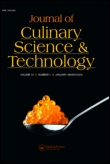
Journal of Culinary Science & Technology
Unveiling the science behind culinary excellence.Journal of Culinary Science & Technology, published by Taylor & Francis Inc, is a prominent peer-reviewed journal dedicated to the interdisciplinary exploration of culinary science, bridging the gap between food production, technology, and gastronomy. Since its inception in 2006, this journal has become increasingly relevant in the field of Food Science, currently ranked Q3 evidenced by its Scopus classification within the agricultural and biological sciences category, which reflects its commitment to advancing knowledge and innovation. With a focus on research that encompasses everything from food safety to culinary trends and nutrition, the Journal of Culinary Science & Technology serves as an invaluable resource for researchers, industry professionals, and students alike, facilitating the sharing of key insights and practices crucial for the evolving culinary landscape. Although not an open-access journal, substantial contributions are made to the academic community through its noteworthy publications, fostering a deeper understanding of culinary methodologies and technologies.

Future Foods
Navigating the intersection of food and technology.Welcome to Future Foods, a cutting-edge academic journal published by Elsevier, dedicated to advancing the field of food science. As a prestigious Q1 journal in the Food Science category, it ranks impressively as #43 out of 389 in Scopus, placing it in the 89th percentile among its peers. Future Foods aims to explore innovative developments in sustainable food systems, novel food products, and the intersection of technology and food production, thus providing a platform for research that addresses global challenges such as food security and nutrition. With its focus on future-oriented solutions and trends in the food industry, this journal is essential for researchers, professionals, and students who are eager to contribute to the discourse around cutting-edge food science. Situated in the Netherlands, the journal serves the international academic community and fosters collaboration and knowledge sharing in the realm of food innovation.

Food Culture & Society
Navigating the Complexities of Food and SocietyFood Culture & Society is an esteemed journal dedicated to the multifaceted analysis of food, culture, and social practices, published by Routledge Journals, Taylor & Francis Ltd in the United Kingdom. With an ISSN of 1552-8014 and an E-ISSN of 1751-7443, this journal offers a rigorous platform for interdisciplinary research, engaging scholars and practitioners alike. Renowned for its high impact factor and categorized in the Q1 quartile in Cultural Studies, it has firmly established itself as a pivotal publication in the study of food through cultural and social lenses. Additionally, it ranks #140 in Cultural Studies according to Scopus, reflecting its critical role in advancing knowledge in this field. The journal emphasizes the importance of food as a cultural artifact and a site for social inquiry, inviting contributions that explore themes ranging from food systems and sustainability to identity and globalization. As it converges from 2008 to 2024, Food Culture & Society stands at the forefront of scholarly discourse, catering to a diverse audience of researchers, students, and professionals committed to understanding the vital connections between food and society.
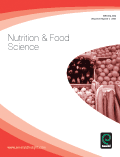
Nutrition & Food Science
Cultivating a deeper understanding of nutrition and food systems.Nutrition & Food Science, published by EMERALD GROUP PUBLISHING LTD, is a prominent journal dedicated to advancing the understanding of nutritional science and food technology. With an ISSN of 0034-6659 and an E-ISSN of 1758-6917, this journal has provided a platform for scholarly articles, reviews, and insightful research since its inception in 1971. The journal is recognized in the Q3 quartile for both Food Science and Nutrition and Dietetics categories, showcasing its moderate impact within the field. Currently ranked #202 in Food Science and #81 in Nutrition and Dietetics based on Scopus metrics, it caters to a diverse audience of researchers, practitioners, and students eager to explore the latest findings and developments. While not an open-access journal, it offers various subscription options for individuals and institutions keen on accessing high-quality research. With a commitment to interdisciplinary collaboration and practical applications, Nutrition & Food Science is an essential resource for those invested in improving health outcomes through informed dietary practices and food innovations.

Journal of Future Foods
Unlocking the potential of future foods.Welcome to the Journal of Future Foods, a prominent peer-reviewed publication dedicated to advancing knowledge and innovation within the realms of Agricultural and Biological Sciences, Food Science, and Nutrition and Dietetics. Published by KEAI PUBLISHING LTD in China, this journal has rapidly achieved a distinguished reputation, reflected in its impressive Q1 category ranking for both Agricultural and Biological Sciences and Food Science, along with a strong standing in Nutrition and Dietetics. The journal, which spans the period from 2021 to 2025, is committed to fostering interdisciplinary research that addresses the challenges and opportunities presented by the future of food. With a focus on open access, the Journal of Future Foods aims to disseminate crucial findings and foster collaborative dialogue among researchers, professionals, and students alike. By submitting your work, you not only contribute to cutting-edge advancements in the field but also join a vibrant community engaged in redefining the future of food systems.